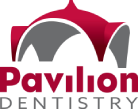Finding the right dentist in St. Catharines for gum disease prevention can make all the difference in maintaining oral health. At Pavilion Dentistry, the team has made gum disease prevention a top priority because catching it early can save patients’ teeth and prevent costly treatments down the road.
Why Your Dentist in St. Catharines Focuses on Early Detection
Gum disease affects nearly 70% of Canadian adults, yet many people don’t realize they have it until it’s advanced. The experienced team at Pavilion Dentistry wants to change that statistic in the St. Catharines community.
“I had no idea my gums were in trouble until my cleaning appointment,” shares Janet, a long-time patient. “The bleeding I thought was normal from brushing too hard was actually an early warning sign.”
Gum disease starts quietly. Initially, bacteria accumulate along the gum line, forming plaque. Without proper removal, this plaque hardens into tartar, which only professional cleaning can remove. Subsequently, gums become inflamed, leading to gingivitis—the earliest stage of gum disease.
Early Warning Signs Every Patient Should Recognize
Recognizing early symptoms can prevent serious complications. Patients should watch for these warning signs:
- Gums that bleed during brushing or flossing
- Red, swollen, or tender gums
- Persistent bad breath that doesn’t improve with brushing
- Gums that appear to be pulling away from teeth
- Loose or shifting teeth
- Changes in how teeth fit together when biting
“Patients often ask why their gums bleed,” explains the hygienist team at Pavilion Dentistry. “Healthy gums shouldn’t bleed from normal brushing. If they do, it’s time to see a dentist in St. Catharines for an evaluation.”
Understanding the Stages: What Your Dentist in St. Catharines Looks For
Gingivitis: The Reversible Stage
Gingivitis is the mildest form of gum disease. Fortunately, it’s completely reversible with proper care. Gums may appear red and swollen, and they might bleed easily during cleaning.
“When we catch gingivitis early, we can usually reverse it within a few weeks of improved home care and professional cleaning,” explains Dr. Miller at Pavilion Dentistry. This is why regular visits to a dentist in St. Catharines are so crucial.
Periodontitis: When Professional Intervention Becomes Critical
If gingivitis progresses untreated, it develops into periodontitis. At this stage, infection spreads below the gum line, creating pockets between teeth and gums. These pockets trap bacteria and debris, making the condition worse.
“I wish I’d taken my bleeding gums more seriously,” reflects Michael, who required extensive treatment for advanced periodontitis. “My dentist in St. Catharines saved my teeth, but it could have been prevented with earlier intervention.”
Advanced Periodontitis: The Point of No Return
In advanced stages, tissues and bone supporting teeth are destroyed. Teeth may become loose or require extraction. However, even at this stage, a skilled dentist in St. Catharines can help preserve remaining teeth and restore oral health.
Professional Treatment Options: How Your Dentist in St. Catharines Can Help
Regular Professional Cleaning
During routine cleanings, dental professionals remove plaque and tartar from above the gum line. These appointments typically take 45-60 minutes and should occur every six months for most patients.
“Regular cleanings are like maintenance for your car,” the team at Pavilion Dentistry explains to patients. “They prevent small problems from becoming expensive repairs.”
A dentist in St. Catharines will also examine gums during these visits, measuring pocket depths and checking for signs of disease progression.
Deep Cleaning: When More Intensive Treatment Is Needed
Deep cleaning, also called scaling and root planing, addresses gum disease below the gum line. This procedure removes bacteria and tartar from tooth root surfaces and smooths rough areas where bacteria tend to accumulate.
“The deep cleaning was more comfortable than I expected,” shares Sarah, who recently completed this treatment. “My dentist in St. Catharines used local anesthetic, so I felt no discomfort during the procedure.”
Deep cleaning typically requires multiple appointments and may include:
- Local anesthesia for comfort
- Removal of tartar and bacteria from below the gum line
- Smoothing of tooth root surfaces
- Possible antibiotic treatment to control infection
Home Care Strategies Recommended by Your Dentist in St. Catharines
Daily Brushing Techniques
Proper brushing technique is essential for gum health. Patients should use a soft-bristled toothbrush and fluoride toothpaste. Brushing for two minutes, focusing on the gum line where bacteria accumulate, provides optimal results.
“We recommend the modified Bass technique to our patients,” notes the dental hygienist team. “Angle the brush 45 degrees toward the gum line and use gentle, circular motions.”
Flossing: The Foundation of Gum Health
Daily flossing removes plaque from between teeth where toothbrushes can’t reach. Many patients tell their dentist in St. Catharines that flossing causes bleeding, but this usually indicates inflammation that will improve with consistent flossing.
“Patients should start slowly if they’re new to flossing,” advises the team at Pavilion Dentistry. “Gums may be tender initially, but they’ll become healthier and more comfortable within a week or two.”
Additional Tools for Optimal Gum Health
Patients can consider incorporating these tools into their routine:
- Antimicrobial mouthwash to reduce bacteria
- Water flossers for easier cleaning around dental work
- Interdental brushes for larger spaces between teeth
- Tongue scrapers to reduce overall bacteria levels
Lifestyle Factors That Impact Gum Health
Nutrition and Gum Disease
A balanced diet supports gum health. Foods rich in vitamin C, such as citrus fruits and leafy greens, help maintain healthy gum tissue. Conversely, sugary and processed foods feed harmful bacteria.
Smoking and Gum Disease
Smoking significantly increases the risk of gum disease and impairs healing. “Smokers are three times more likely to develop severe gum disease,” explains the team at Pavilion Dentistry. “Quitting smoking is one of the best things patients can do for their gums.”
When to Contact Your Dentist in St. Catharines
Patients shouldn’t wait for pain to schedule an appointment. Gum disease often progresses without discomfort. Contact Pavilion Dentistry if experiencing:
- Persistent bleeding gums
- Swelling or tenderness
- Bad breath that won’t go away
- Changes in bite
- Loose teeth
At Pavilion Dentistry, the team is committed to helping the St. Catharines community maintain healthy gums for life. Ready to take control of gum health? Call 905-641-2242 to schedule an appointment today.


0 Comments